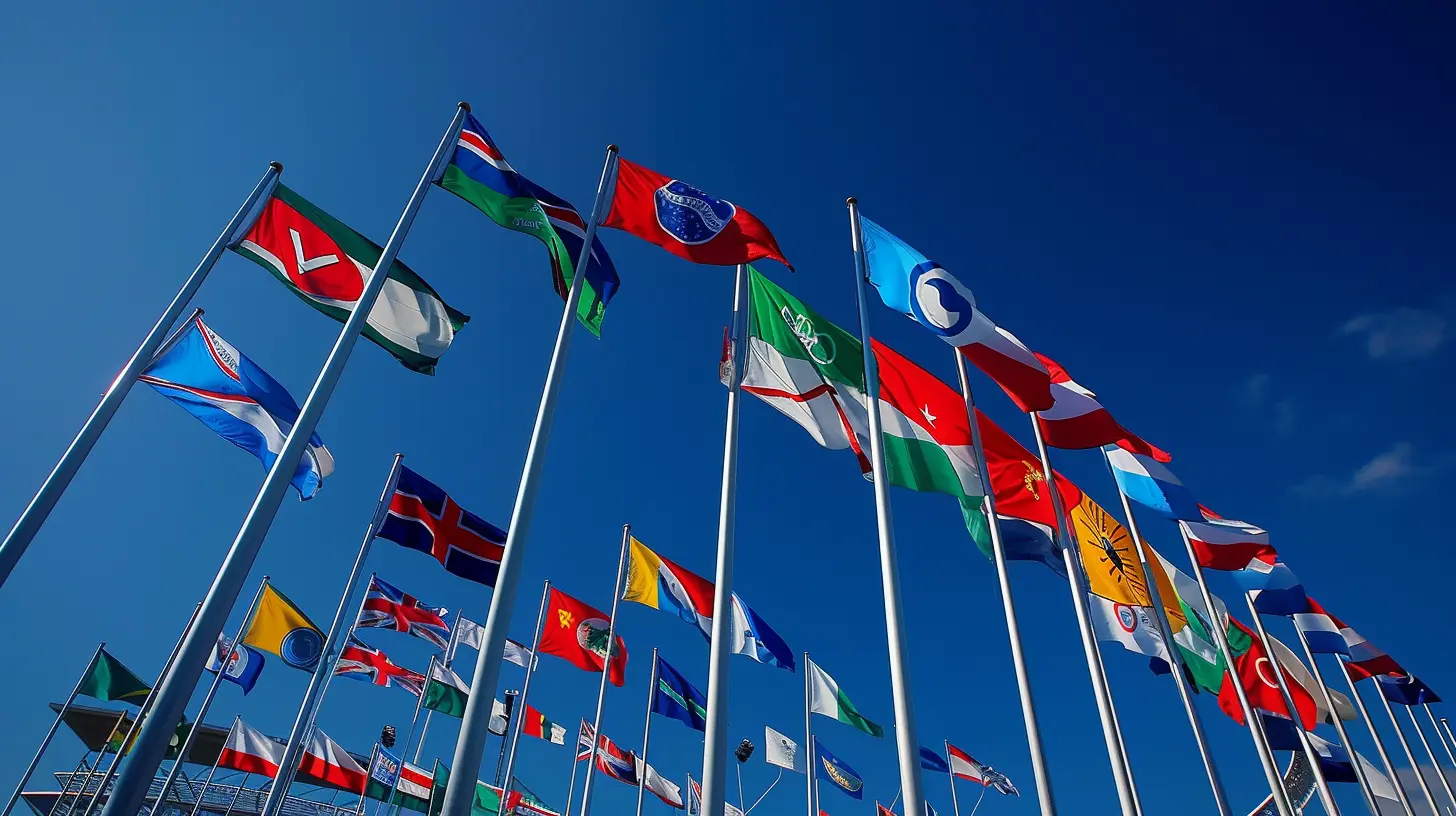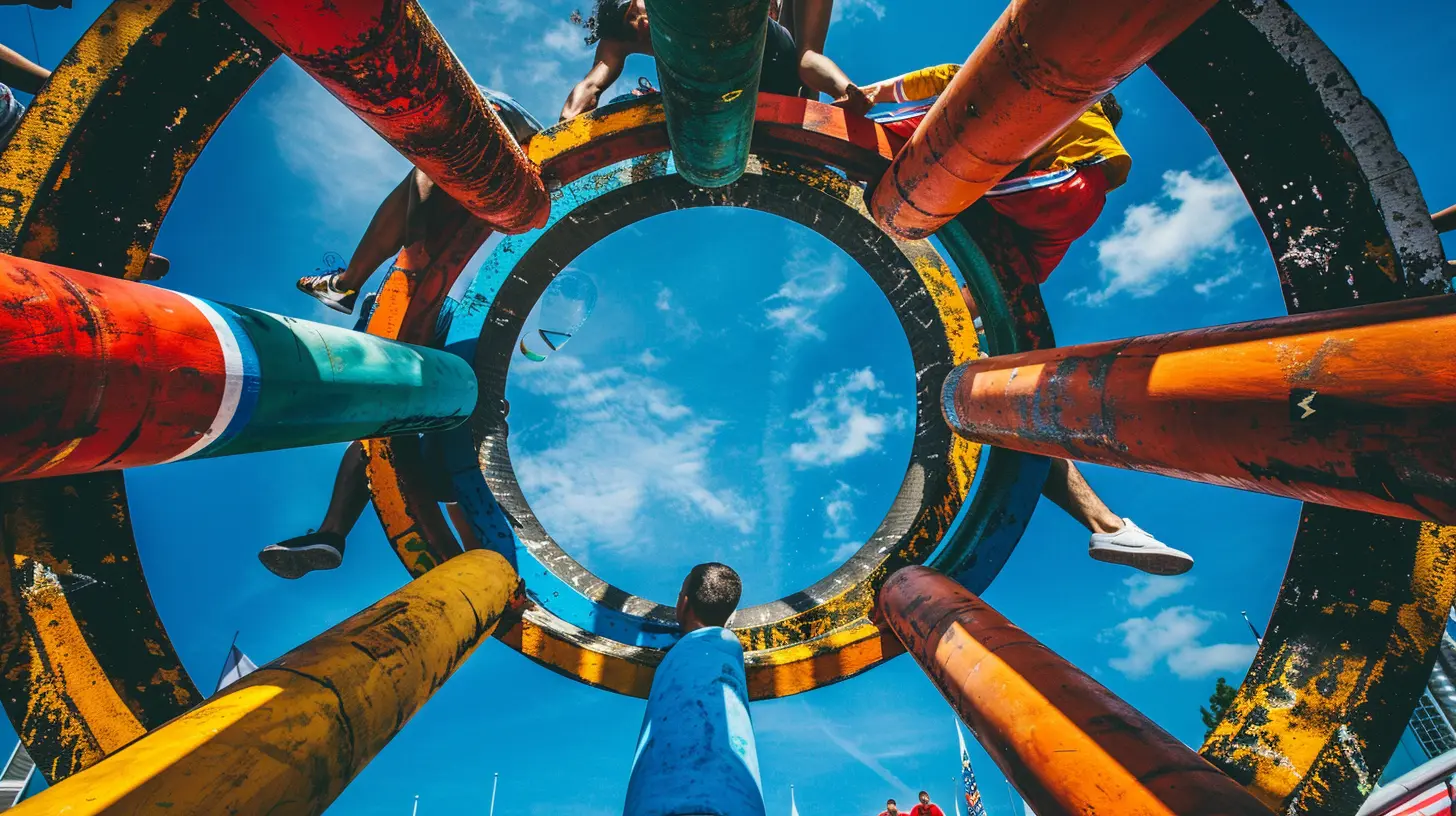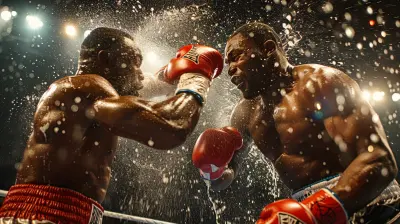The Intersection of Politics and the Olympics: A Historical Look
1 October 2025
Ah, the Olympics. That magical time every two years (thanks to that winter/summer flip-flop schedule) when the world pretends to forget its problems and gather under the banner of sportsmanship, camaraderie, and... oh wait—politics?
Yep, you read that right. Behind every torch lighting and medal ceremony, there's usually a whole lot more than meets the eye. And no, we’re not just talking about the awkward national anthem renditions or those over-the-top opening ceremonies. We’re diving into the juicy, drama-filled, often eyebrow-raising history of how politics has tangoed with the Olympics.
Buckle up, sports fans. Things are about to get real.
When the Games Stopped Being Just Games
Let’s rewind a bit, shall we?The Olympics, as rooted in ancient Greece, were supposed to be all about peace. In fact, during the original Olympic Games, wars were literally put on pause. Imagine that—enemies dropping their swords mid-battle because someone had to go throw a javelin. Wild, right?
But that noble ideal didn’t exactly make the journey to modern times unscathed.
Since the rebirth of the modern Olympics in 1896, politics has been lurking in the shadows, sometimes creeping in subtly, and other times kicking down the door in grand fashion.
The Nazi Games – 1936 Berlin Olympics
Let’s start with one of the most infamous examples: the 1936 Berlin Olympics.Adolf Hitler saw the Games as a golden opportunity for Nazi Germany to flex its propaganda muscles. He wanted to showcase Aryan superiority, national pride, and the big ol' swastika everywhere he could. But Jesse Owens had other plans.
Owens, an African-American track and field athlete, strolled into Berlin and snatched four gold medals right under Hitler’s nose. It was like the ultimate mic drop in the face of racism.
And while Owens' victory was legendary, it didn’t erase the fact that these Games were essentially a political theater on steroids.
Olympics in the Age of the Cold War
If the Olympics were a movie during the Cold War, it would’ve been a psychological thriller—complete with spies, political boycotts, and dramatic walkouts.1956 Melbourne Olympics
Let's talk walkouts.In 1956, several countries boycotted the Games due to various geopolitical tensions. Egypt, Iraq, and Lebanon boycotted over the Suez Canal crisis. The Netherlands, Spain, and Switzerland pulled out after the Soviet invasion of Hungary. And China? They backed out because Taiwan was allowed to compete under the name "Republic of China."
It was basically the most passive-aggressive group text in Olympic history.
1980 Moscow Olympics
Fast-forward to the 1980 Games in Moscow. The U.S. and over 60 other countries boycotted in protest of the Soviet invasion of Afghanistan. This meant that many top athletes didn’t even get to compete in their prime years. Imagine training your whole life, only to be told, “Sorry, we’re sitting this one out.” Brutal.1984 Los Angeles Olympics
And in classic tit-for-tat fashion, the Soviet Union responded by giving the LA Games a hard pass in 1984. They claimed it was for "security concerns," but we all know a diplomatic cold shoulder when we see one.
Apartheid and the Olympic Ban
Politics and sports collided again in the case of apartheid South Africa.From 1964 to 1988, South Africa was banned from the Olympics due to its apartheid policies. The global sports community essentially told South Africa, “You wanna play? Ditch the racism first.” The world stood united in one of the Olympics’ rare moments of moral clarity. Not only did it send a strong message, but it was also a powerful example of sport influencing political change.
The 1968 Mexico City Black Power Salute
Alright, now let’s go iconic.You can’t talk about politics in the Olympics without mentioning Tommie Smith and John Carlos. During the medal ceremony, after absolutely crushing the 200 meters, the two American sprinters raised their fists in a Black Power salute.
It was a silent yet thunderous protest against racial injustice in the U.S., and it sent shockwaves worldwide. The IOC (International Olympic Committee) wasn’t thrilled—big surprise—and both athletes faced backlash. But their stance? Timeless. It transformed them from athletes into symbols of resistance.
Boycotts, Bans, and the Bizarre
The Olympics aren’t just a stage for heroes. Sometimes, they’re a petri dish of political absurdity.Taiwan vs. China
The whole Taiwan-China naming debacle has led to some serious diplomatic gymnastics. Taiwan competes under the name "Chinese Taipei" and with a special flag and anthem. It’s basically international side-eye protocol.Russia's Doping Drama
Oh, and then there’s Russia—because what’s international sport without a little scandal?After a massive state-sponsored doping scandal, Russia was essentially banned from the Olympics starting in 2016. Athletes could still compete, but under neutral flags and titles like "Olympic Athletes from Russia" or "ROC" (Russian Olympic Committee). It’s like being grounded but still allowed to go to the birthday party if you promise not to dance.
The IOC’s Awkward Dance with Neutrality
The International Olympic Committee often claims to be apolitical. But let’s be honest, that’s like saying referees are unbiased in soccer—everyone knows there's always some drama.The IOC has walked a tightrope over the years. Whether it's deciding which countries to allow, what flags can be flown, or how to respond to human rights issues—its decisions are always under a microscope.
Take the 2008 Beijing Games. Many criticized China’s human rights record. But the show went on, with fireworks, fanfare, and a whole lot of global side-eyes.
The Modern Era: Political Statements on Center Stage
These days, athletes are more vocal than ever. And rightly so. The Olympic stage, with its massive global audience, is a prime platform for messages that matter.From kneeling during anthems to wearing “Black Lives Matter” apparel, athletes are reminding the world that sports don’t exist in a vacuum. At the 2020 Tokyo Olympics, Raven Saunders made headlines with an X-shaped gesture on the podium, symbolizing the intersection of oppression.
The IOC has relaxed some of its rules, but it still tries to keep things "neutral." Whatever that means, right?
The 2022 Beijing Winter Olympics: Politics on Ice
If you thought things had cooled off by the 2022 Winter Olympics, think again.There were diplomatic boycotts left and right due to China’s treatment of Uyghur Muslims and other human rights concerns. The U.S., UK, Australia, and others didn’t send official delegations, though the athletes still competed.
So yeah, the games went on—but politics were very much in the building, even if their credentials were revoked.
Can the Olympics Ever Be Apolitical?
Let’s be real: probably not.The Olympics are a global gathering of countries. Add national pride, billions in revenue, and decades of historical baggage, and you've got a recipe for political stew. Tasty? Not always. Spicy? Oh, for sure.
But maybe that’s not entirely a bad thing. After all, sports have always had the power to unite, inspire, and even instigate change. When done right, political activism in sports doesn’t ruin the spirit—it enriches it.
Why We Still Love the Olympics
Despite all the drama, boycotts, and behind-the-scenes chess moves, we still tune in. We still cry when an underdog wins gold, cheer like maniacs for our countries, and get weirdly emotional over synchronized swimming.Maybe it's because, at their core, the Olympics are about hope—the hope that people from around the world can come together, compete fairly, and find common ground.
Even if that common ground sometimes includes a whole lot of political mud.
Final Thoughts: A Podium-Worthy Takeaway
So, the next time you’re watching the Olympics—whether it's bobsledding in Beijing or gymnastics in Paris—remember: there's always more going on than just the medals.The intersection of politics and the Olympics is complicated, messy, and often uncomfortable. But it's real. And understanding it helps us appreciate not just the athletic feats, but the context in which they happen.
Let’s keep cheering for our favorite athletes, but let’s also stay woke to what’s really happening behind the scenes. Because in the Olympic arena, the games may be temporary—but the impact? That sticks.
all images in this post were generated using AI tools
Category:
OlympicsAuthor:

Onyx Frye
Discussion
rate this article
1 comments
Bradley Kane
Insightful analysis! The interplay of politics and sports remains a compelling topic.
October 21, 2025 at 2:23 AM

Onyx Frye
Thank you! I'm glad you found it insightful. The relationship between politics and sports is indeed fascinating and deeply impactful throughout history.


